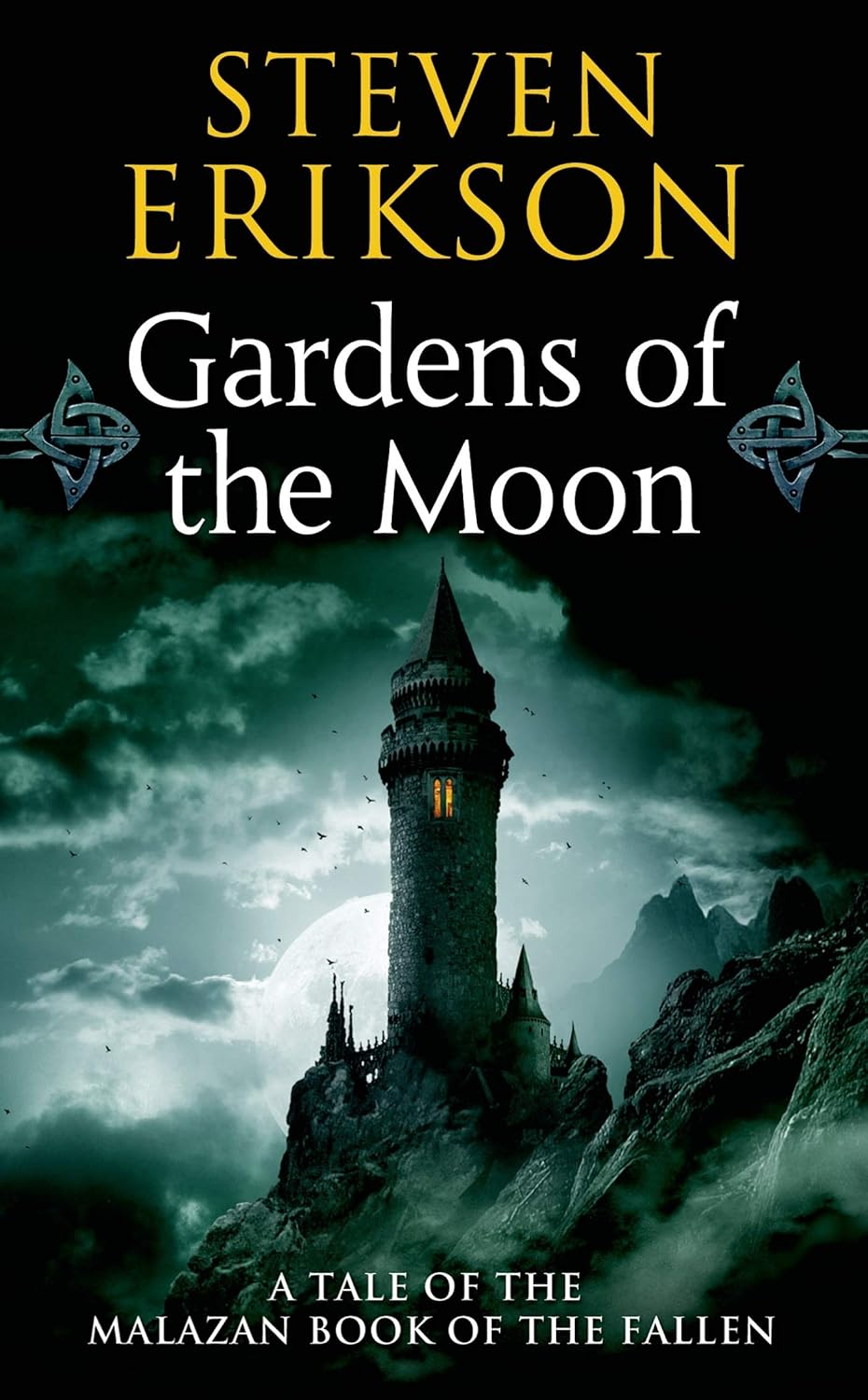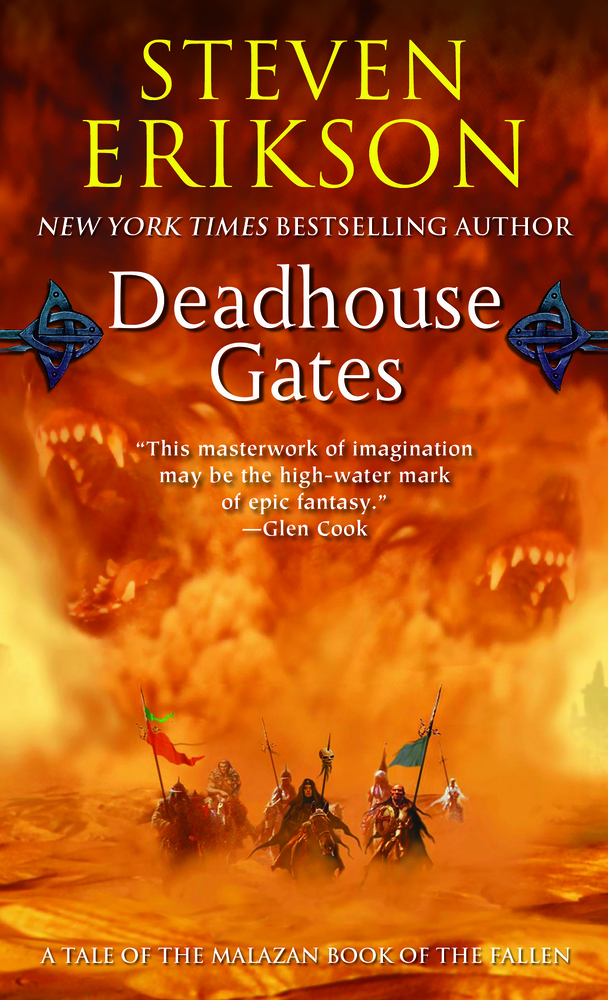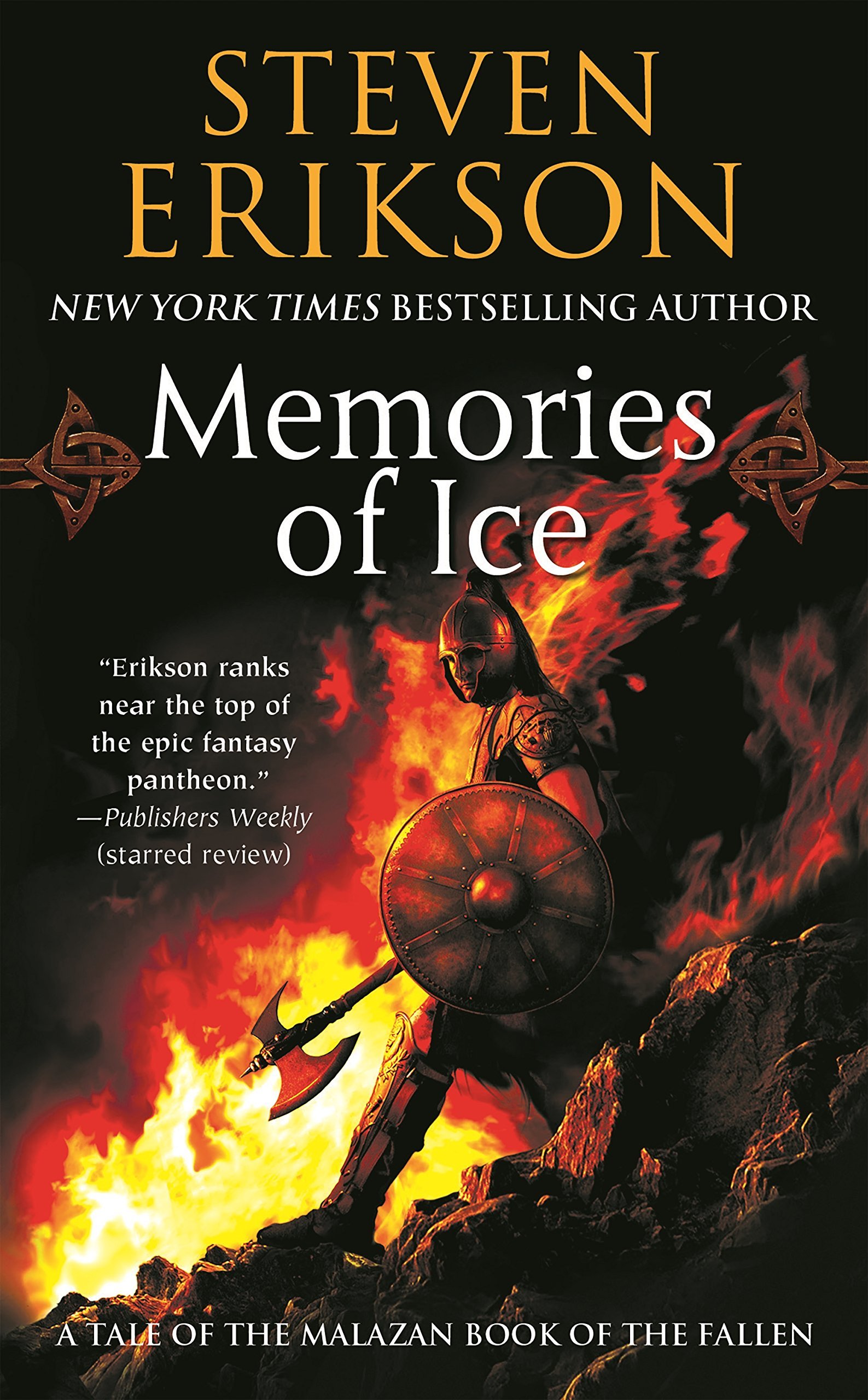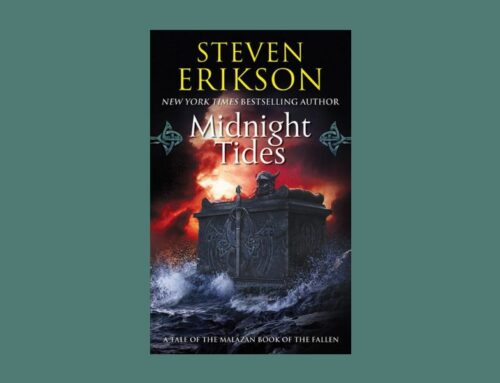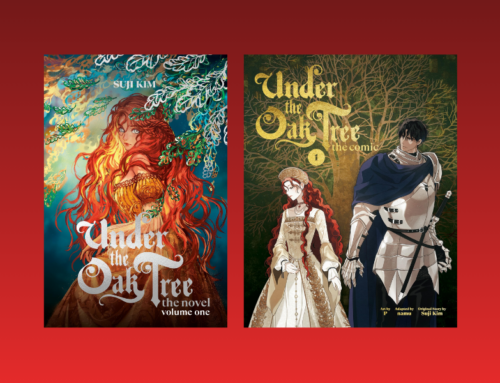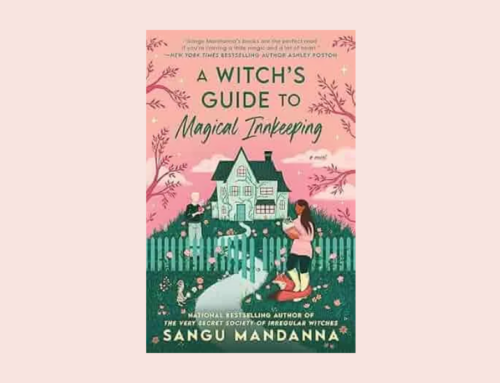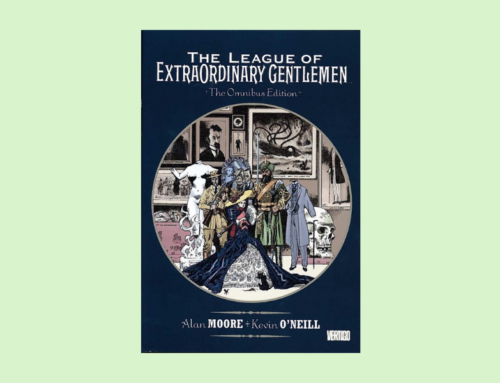by Else
(This is the third installment in an ongoing series. You can read part 1 here, and part 2 here.)
Welcome back to the series that is going to go on for so long, at the end you’ll be sick of me. But I still won’t be sick of my Malazan Book of the Fallen reread. I just finished Memories of Ice, the third installment of the series.
This book is one of the most heartbreaking books of the series. Author Steven Erikson can break your heart like no other. Even though he gives you a load of main characters to love, what happens to them and how it happens can still wrench out your heart. It is always interesting that a writer can make you care so much for a character, or characters. How Erikson does this is by giving us the human side of the characters, showing their vulnerabilities, how they care for one another and then maybe something bad will happen to them, or to people they love. And in Memories of Ice, he does both.
This time the book takes us back to the Genabackis, were we left off in the first book. The Second army has turned renegade, and under Dujek One Arm the host is joining forces with Caladan Brood, Malazan Empire’s main opposition on the continent. Together they are going to fight the tyrannical Pannion Domin, an empire literally eating up entire cities with their armies.
When I say “literally eating up cities,” I do in fact mean literally. The Tenescowri are the peasant army following the Pannion army, who are purposefully kept hungry so that they resort to the last possible option: cannibalism. This book is about an empire literally eating itself up from the inside out, and the people trying to fight and stop them. Have I mentioned these books aren’t happy books? I think I have.
Even though this is not a happy book, the books still hold on to hope. A hope of being able to stand up for what is right, opposing tyrannical rule, and most of all compassion. As a character says towards the end of the book:
“We humans do not understand compassion. In each moment of our lives, we betray it. Aye, we know of its worth, yet in knowing we then attach to it a value, we guard the giving of it, believing it must be earned. Compassion is priceless in the truest sense of the word. It must be given freely. In abundance.”
I am going to dry my tears for a bit and go right into the next book, House of Chains. See you soon!

